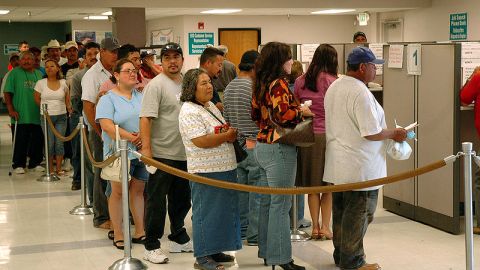Out of Work Indefinitely

The official unemployment rate remains almost 10%. That in itself is nearly as high as it has been since the early 80s and is plenty bad enough. But it nevertheless doesn’t capture how bad things have been for many Americans. It’s not just that so many of us are out of work, but that so many of us have been out of work for such a long time.
As the Wall Street Journal reported yesterday, nearly half the unemployed—some 7 million people—have been looking for work for 27 weeks or more. And 4.7 million of the long-term unemployed have actually been looking for work for more than a year. Those numbers probably understate the number of people who have been out of work a long time, since the official figures don’t count people who have given up looking for work. Compared to recent recessions, those numbers are off the charts. Even in the early 1980s, when the unemployment rate was even higher than it is now, only about a quarter of the unemployed were out of work as long as 27 weeks. As The Journal’s interactive graphic shows, we haven’t seen this kind of chronic unemployment since the government began keeping track more than 60 years ago.
The whole country has been affected. But a few states—like Michigan, with its 15% unemployment—have been hit particularly hard. As the the Journal’s graphic shows, people looking for manufacturing jobs—like tool and die makers, woodworkers, and food processors—are having an especially difficult time, taking on average more than 38 weeks to find a job. People looking for management and finance jobs have found it almost as hard. Even having a college degree hasn’t made it any easier, with college graduates taking just as long as everyone else to find work. But older workers have probably been hit the hardest. Those over 65 have found it almost impossible to find a job, with the median unemployed person between the ages of 65 and 69 needing almost a full year to find work.
Long-term unemployment like this takes a psychological and financial toll. Being out of work for an extended period can deplete your bank account. Many people’s savings have been wiped out, and they have been forced to drastically lower their standard of living. And being out of work for a long period can make it even harder to find a job. The longer you’ve been out of work the rustier your job skills get and the more difficult the gap on your resume becomes to explain. That raises the possibility that the U.S. might develop a pool of permanently unemployed workers such as Europe used to have. While there are recent signs of improvement in the American economy—and although the it has slowly begun to add a few jobs—relief can’t come fast enough for many Americans.





